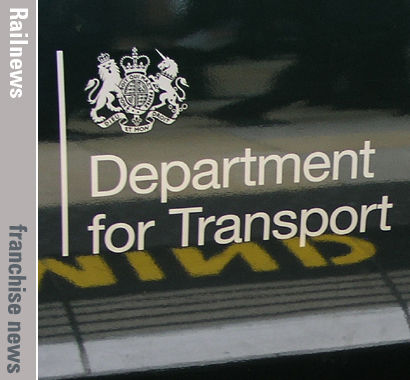THE Government has announced that rail franchising is over, after more than 24 years. The Emergency Measures Agreements introduced in England on 23 March have been extended by 18 months and will be known from now on as Emergency Recovery Measures Agreements or ERMAs, while the Scottish Government announced just before the weekend that it has extended its support for ScotRail and Caledonian Sleeper, which started in April, for another six months.
The train operators continue to exist under ERMAs but no longer take commercial risk because their revenue is paid to the Department for Transport, which also pays their costs.
The DfT said the new ERMAs are ‘more demanding’, and has reduced the 2 per cent management fee to 1.5 per cent at most. The Williams Review of the structure of the railway industry has yet to be published, but it had been known that it was set to recommend the replacement of franchises with concessions, which already exist on the Docklands Light Railway and most tram systems. Under concessions operators are paid to provide a service for a more or less fixed fee, and have no discretion over fares or timetables.
Transport secretary Grant Shapps said: ‘The model of privatisation adopted 25 years ago has seen significant rises in passenger numbers, but this pandemic has proven that it is no longer working. Our new deal for rail demands more for passengers. It will simplify people's journeys, ending the uncertainty and confusion about whether you are using the right ticket or the right train company.
‘It will keep the best elements of the private sector, including competition and investment, that have helped to drive growth – but deliver strategic direction, leadership and accountability.
‘Passengers will have reliable, safe services on a network totally built around them. It is time to get Britain back on track.’
Taxpayers will see savings in the longer term, said the DfT.
Keith Williams said: ‘These new agreements represent the end of the complicated franchising system, demand more from the expertise and skills of the private sector, and ensure passengers return to a more punctual and co-ordinated railway.
‘I am ensuring the recommendations I propose are fit for a post-Covid world, but these contracts kickstart a process of reform that will ensure our railways are entirely focused on the passenger, with a simpler, more effective system that works in their best interest.’
FirstGroup’s Great Western Railway EMA had already been extended at the start of September, to run until next June at least.
Rail Delivery Group chief executive Paul Plummer said: ‘We welcome the ongoing support to keep trains running for passengers and the government’s confirmation of an end to the franchise system, which we have long been calling for.
‘These transitional contracts should be a stepping-stone to a better railway. This needs to harness the experience, innovation and investment private sector operators bring, with local train companies taking the decisions that affect their passengers. It should be overseen by a new guiding mind for the whole industry and underpinned by a simpler to use fares system.
‘A renewed and reinvigorated partnership between the public and private sectors will be the best way to improve services.’
The RMT union wants the move to be the first step on the path to full renationalisation. General secretary Mick Cash said: ‘This announcement should now force the government's hand and lead them to face up to what has been staring them in the face for the best part of three decades, that public ownership is the only model that works and can steer us through a crisis such as Covid-19. The Government must now ditch its obession with the free market and call to a halt any attempts to reanimate the corpse of rail privatisation.
‘The money that would have been hoovered up in profits by the private rail companies should now be reinvested into our railways to ensure we have an affordable, accessible and resilient system fit to withstand other crises such as the extreme effects of climate change that is already having a serious impact on our railway infrastructure.’
According to FirstGroup, the DfT will now start talks with the franchise holders over the terms they would accept to terminate their present contracts and introduce new directly-awarded replacements. Agreements are needed by mid-December, but if these talks fail then the DfT can end the relevant ERMA early and reinstate the former contract terms in January. In such a case, the franchise holder would be taking commercial risk once again.


